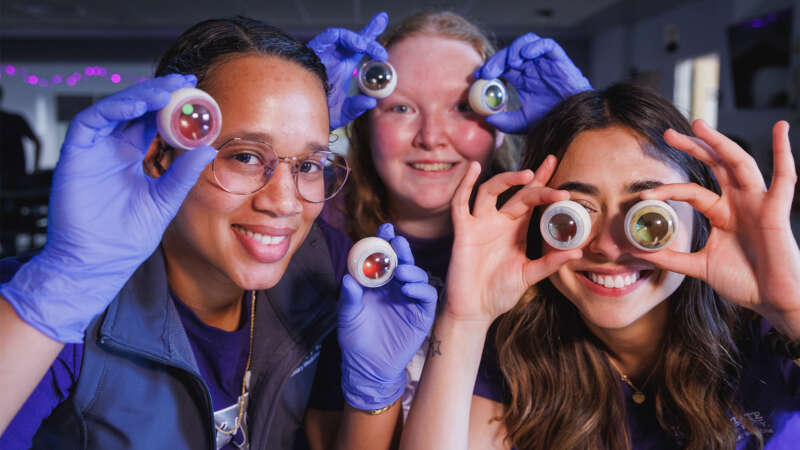Getting K-Staters out of the classroom and into the real world
Today’s K-State students — they’re just like us. (Only smarter.)
Why? Because they’re not stuck in the classroom. For some lucky students, their K-State journey elevates classroom learning to a real-world context — from revising a community’s bicycle safety plan to isolating proteins in cancer cells, or from shadowing physicians in Argentina to discovering you love sloths more than you probably should.
Stepping out into the world to apply what they’ve learned from outstanding K-State professors drives our students to see issues from new perspectives. They develop a new understanding of how to use their education and develop valuable life skills such as financial literacy, cultural appreciation and critical thinking abilities. These high-impact experiences position K-State students as leaders right out of the gate after graduation and, perhaps most importantly, allow them to learn more about themselves.
Meet six students who left the classroom, put their education into action and discovered how much they’re capable of.
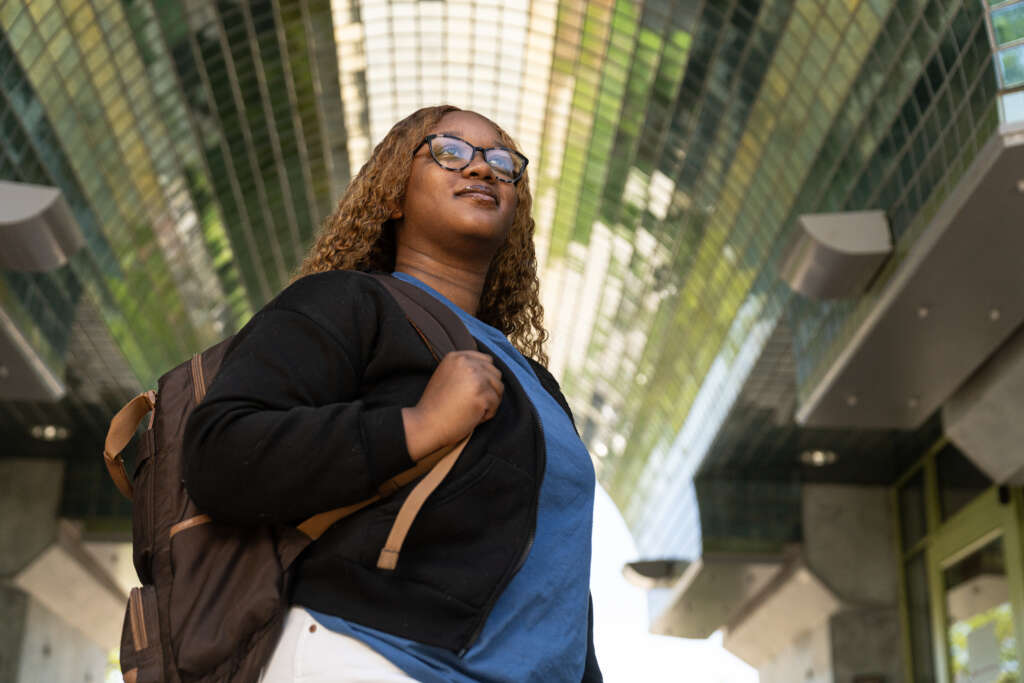
Tyoni Williams came to K-State to study architecture and is leaving as a journalist. Her mom was not surprised.
“She was confused that I didn’t initially pick journalism because I’ve always been obsessed with storytelling,” Williams said. “But then she said, ‘You’ll find you.’”
And she did. As a mass communications major, Williams’ internship with Lents Mazur & Associates, a strategic consulting firm in St. Louis, built on her classroom learning and broadened her writing experience.
“I had never written a press release or professional social media content before,” she said. “So writing things for a company to actually use was an invaluable experience.”
On a trip to Costa Rica with her Latinx literature class, she cleaned parks and rivers and worked with a medical clinic for their unhoused population. Though the trip was only a week, what she learned will last a lifetime.
“It was very emotional meeting the people we were helping,” she said. “I realized the experience was more likely to change my life than the people I was helping. I gained more perspective about the world.”
What’s her advice to other students about internships or travel?
“Just go for it,” she said. “If there is not a way, make a way.”
Major: Mass communications
Hometown: Kansas City, Missouri
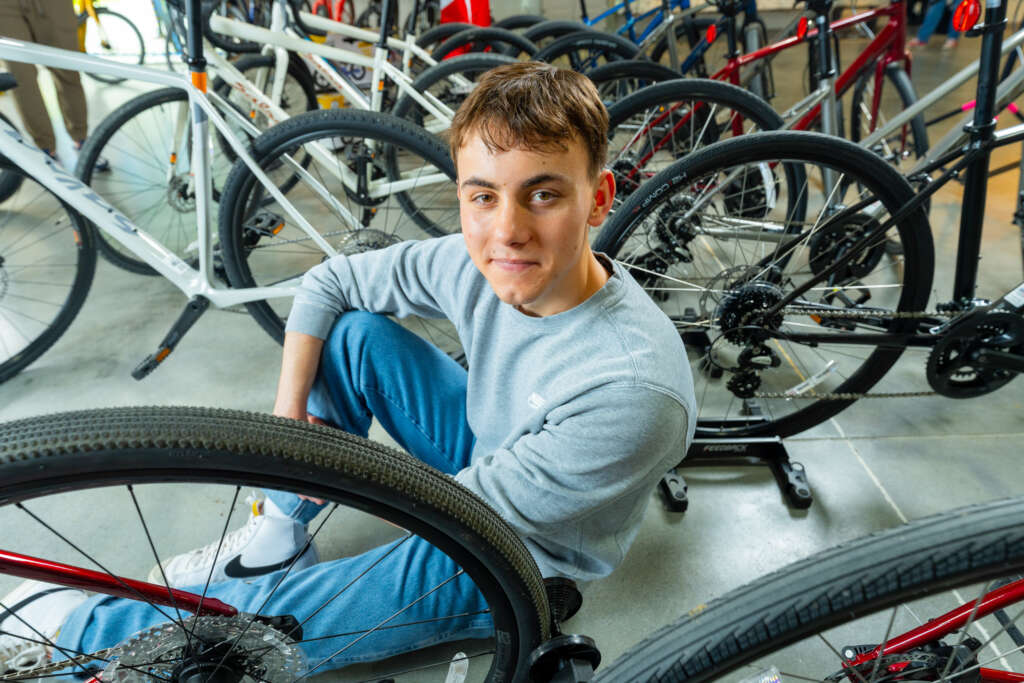
Over the course of three internships, civil engineering major Nick Saia learned this fact of life:
“Your relationship with your boss and others can really change the course of your experience,” he said. “For better or for worse.”
His second internship — the one that wasn’t strictly about engineering — delivered his most profound experience. As the City of Manhattan’s bicycle and pedestrian coordinator, he put his engineering education into action.
“I worked with city planners who knew more about engineering than I did,” he said. “But they let me take my own path, which was great. I had agency and responsibility that I hadn’t been given before.”
Saia leveraged his third internship into a full-time engineering job. His next stop after graduation will be with Burns & McDonnell’s transportation department.
“Because of the opportunities
I had at K-State, I know I can take risks,” he said. “I’m not afraid to try something a little bit different.”
Major: Civil engineering
Hometown: Olathe, Kansas
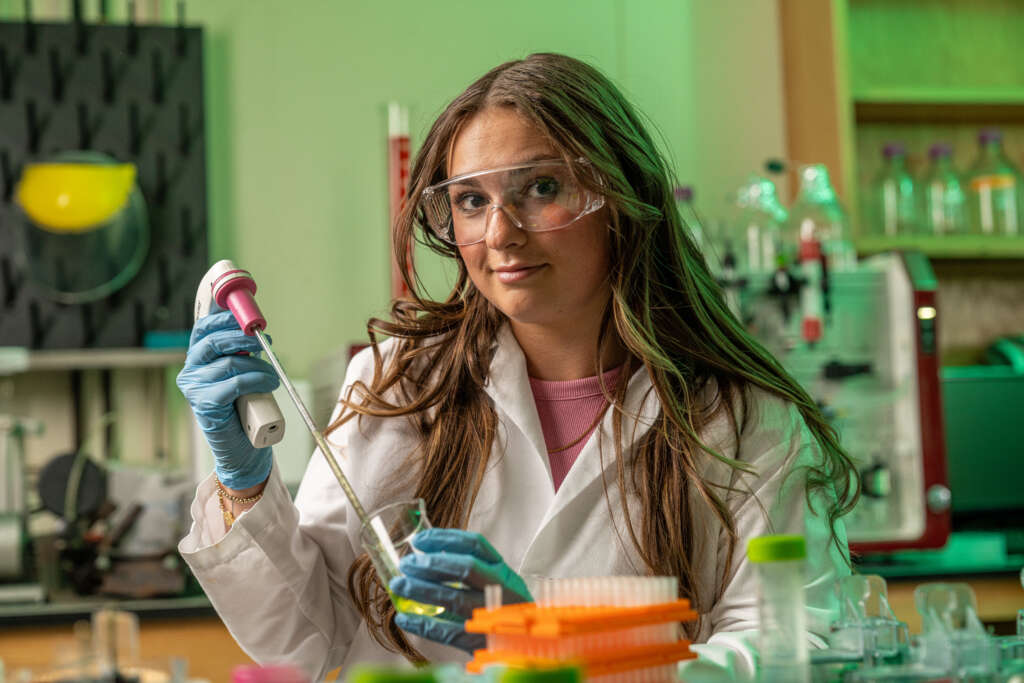
Does Maggie Banhart have more hours in her day than the rest of us?
It’s a reasonable thing to wonder when you hear everything she does: volunteers with K-State’s food pantry, works as a nursing assistant at a Kansas City assisted-living facility, serves as an ambassador for prospective students.
She’s also trying to cure cancer. Her research? Isolating proteins in cancer cells.
“There is a certain protein that inhibits some cancer cells,” she said. “But in colon cancer, it makes it an oncogene, which causes it to regenerate super fast. We’re trying to figure out how to disable oncogenes in certain types of cancers.”
Because Banhart wanted to improve her Spanish, she found a healthcare-focused learning experience in Argentina.
“We would follow the doctors around and listen to patients’ hearts and see x-rays and CT scans,” she said. “My favorite part was getting to speak Spanish every day. The aspect I was dreading initially improved my confidence.”
Schedule-packing Banhart likes to always be learning.
“If I hadn’t taken advantage of all these unique opportunities, I would have been bored,” she said. “And spent too much time on TikTok!”
Major: Biochemistry and Spanish (pre-med)
Hometown: Lee’s Summit, Missouri
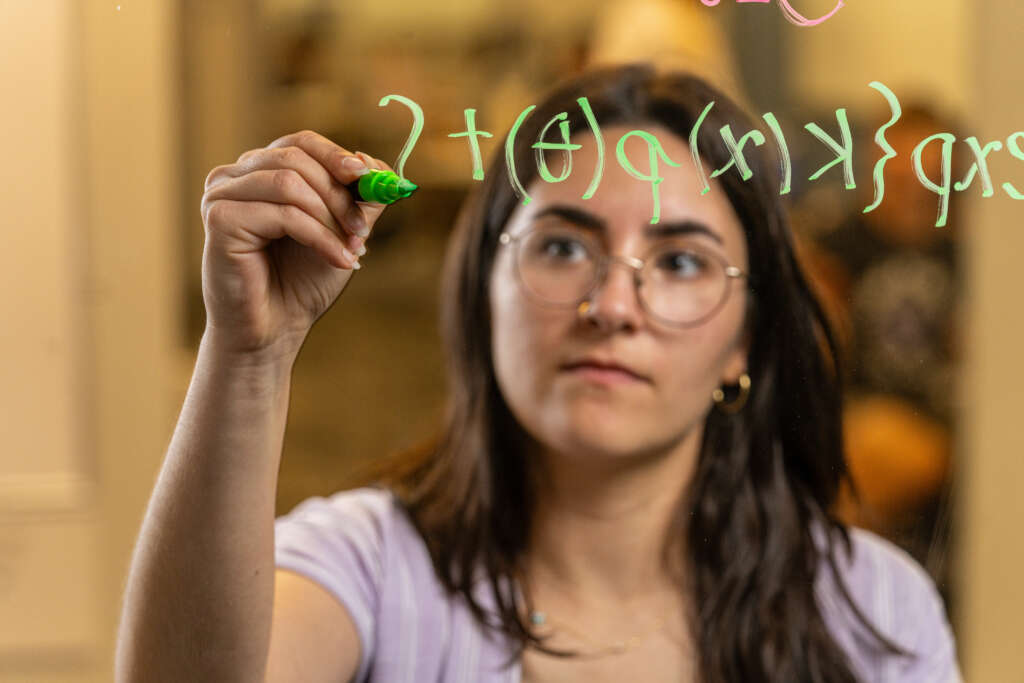
Duru Doğan has loved math since high school. As she says, “Math just makes sense.”
Itching to put her classroom learning to work, Doğan joined a research project to determine whether increased drone strikes in Pakistan would increase anti- American sentiment.
“I measured the number of Pakistani visa applications to study higher education in the U.S. and compared it to previously gathered drone strike data,” she said.
Not satisfied with just one research project, she found another focused on the correlation between high-flavonoid foods and cancer. No class credit — it was just for fun.
She studied abroad twice: in Turkey and Belgium. In Belgium, she looked at political science from a new vantage point.
“It’s a lot more theoretical than at K-State,” she said. “Here it’s more modeling and quantifying conflict or political concepts.”
How did research and studying abroad change Doğan’s view of her K-State experience? “If you don’t step past the classroom,” she said, “you’re not getting the most out of your college experience. Right?”
Major: Statistics, political science and French
Hometown: Manhattan, Kansas
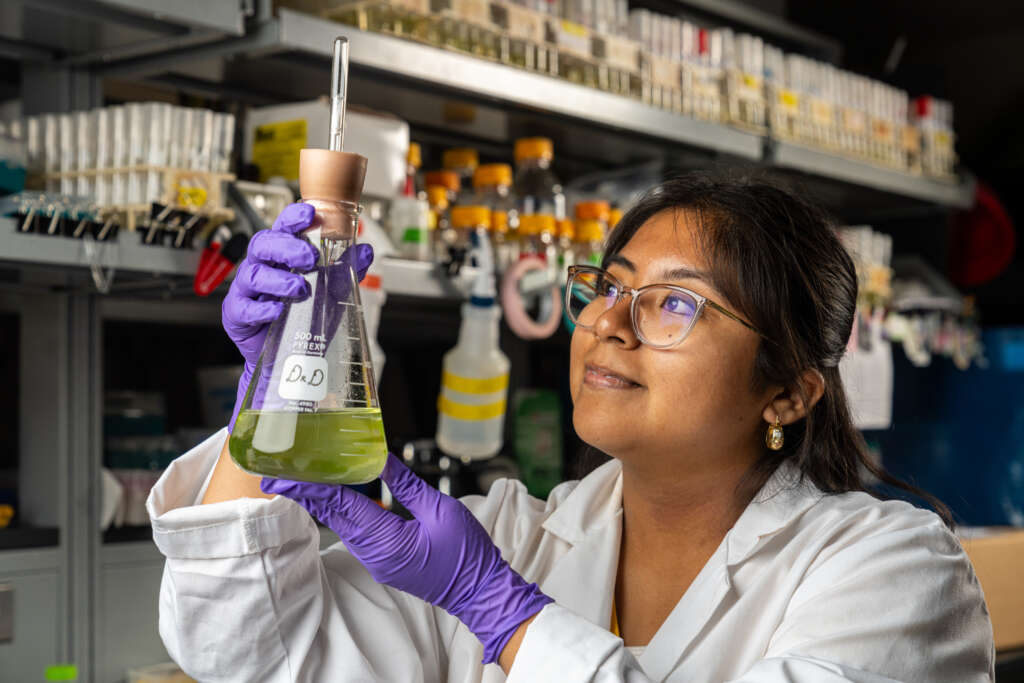
It’s understandable that Lidia Lopez-Vazquez was nervous when she came to K-State. She was taking a big step — from community college to a big-time research university.
“I think applying to come here was one of the most rewarding things I’ve done,” she said.
Opportunities at K-State evolved her research experience from testing household cleaners on bacteria to studying how environmental stress can cause the development of a second cell type in multicellular algae and examining the changes in cellular differentiation.
“We’re trying to get the basis of cellular differentiation,” she said. “If we can understand it in this simple model system, we can apply what we’ve learned to other systems, such as cancer development.”
K-State also opened the world to Lopez-Vazquez. On a trip to Italy as part of the First-Generation Experience, she met new people, marveled at the Colosseum, and soaked up some viniculture science — aka winemaking.
“We went on a wine tour and saw the stages of making wine,” she said. “Fermentation, aging, storing — from the classroom to real life!”
Lopez-Vazquez’s high-impact opportunities have been transformative.
“My education at K-State would not have been the same if I had only gone to classes,” she said. “Building a community and having these experiences has shown me that I can do so much more than I can imagine.”
Major: Biology (pre-med)
Hometown: Dodge City, Kansas
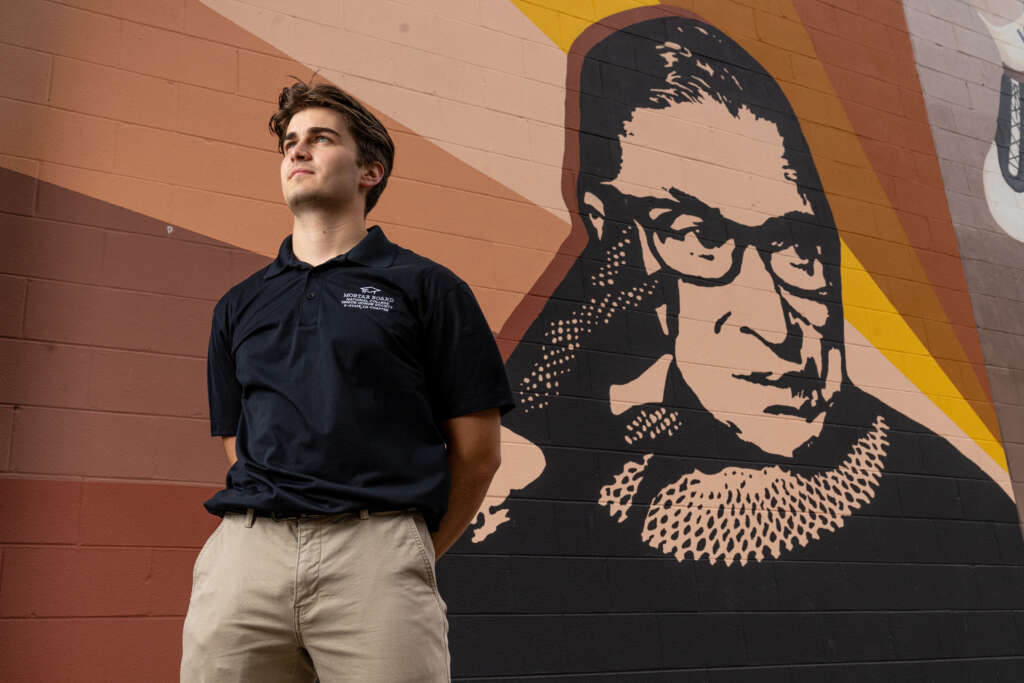
From statewide election strategy to community cemetery maintenance, Andrew Navarro’s internships and research projects put him in the room to learn about public service firsthand.
After an internship in the Kansas State Treasurer’s office — where issues were statewide — a research project through K-State’s Chapman Center for Rural Studies gave him a hyperlocal focus.
Navarro analyzed why more women tend to hold locally elected offices rather than state or federal positions. His research found that while men viewed local positions as entry points to higher office, women were more interested in seeing that a competent person would handle local responsibilities well.
“For example, a county clerk often seems to go above and beyond and help others in a way that’s out of their job description,” he said. “From budgets to fishing licenses to community cemetery maintenance, their jobs can have enormous scope.”
To help with his Spanish minor, he spent a semester in Granada, Spain. In addition to enjoying the paella and patatas bravas, Navarro was taken with the way the local residents interact with each other.
“The way they communicate is very genuine and intimate. It helped me understand their culture and be open to new experiences,” he said. “Their communication style definitely made me feel more accepted in an unfamiliar place.”
Major: Political science (pre-law)
Hometown: Leawood, Kansas
Support high impact learning for all
Let’s make it happen! Giving all students opportunities to learn outside of the classroom is a central part of the Next-Gen K-State strategic plan.
While redefining what a K-State education looks like comes with a price tag, imagine the potential payoff:
What new medical discoveries would we see? What innovative city designs might be born? What could the next generation of young leaders do for our world?
Learn more about applied learning experiences

